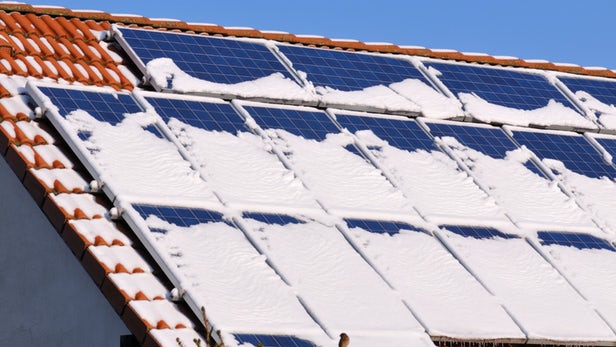Snow-powered nanogenerator works where solar panels don’t

Snowy places aren’t ideal for harvesting solar energy – panels can’t do much if they’re buried under blankets of snow, of course. Now a team from the University of California Los Angeles (UCLA) has developed a new device that can produce electricity from snow itself.
The team calls the new device a snow-based triboelectric nanogenerator, or Snow TENG. As the name suggests it works off the triboelectric effect, meaning it uses static electricity to generate a charge through the exchange of electrons. These kinds of devices have been used to make generators that pull energy from body movements, touchscreens, and even footsteps on floors.
Snow is positively charged, so rubbing it against a material with the opposite charge allows energy to be drawn out of it. After a comprehensive series of testing, the team settled on silicone as the most effective material.
The Snow TENG, which is 3D printable, is made with a layer of silicone attached to an electrode. The team says it could be integrated into solar panels, so they can continue generating electricity even when covered with snow, making it similar to an earlier hybrid solar cell that also harvested energy from the movement of raindrops on its surface.
The problem is that the Snow TENG produces a pretty tiny amount of electricity in its current form – it has a power density of 0.2 mW per square meter. That means you won’t really be hooking that up to the grid like a solar panel, but it could make for small, self-powered weather sensors.
“The device can work in remote areas because it provides its own power and does not need batteries,” says Richard Kaner, senior author of the study. “It’s a very clever device — a weather station that can tell you how much snow is falling, the direction the snow is falling, and the direction and speed of the wind.”
The researchers give other examples like a sensor that could be attached to the bottom of boots or skis and used to collect data for winter sports.

